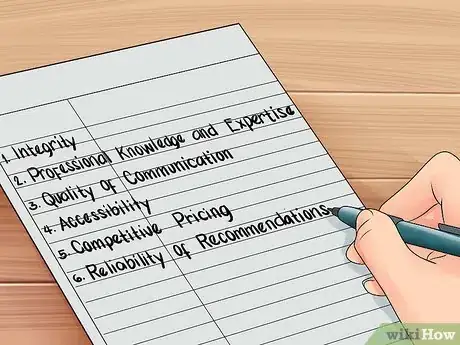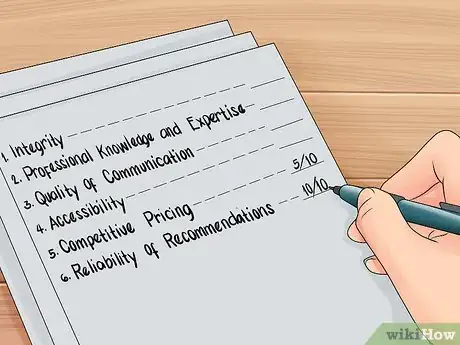wikiHow is a “wiki,” similar to Wikipedia, which means that many of our articles are co-written by multiple authors. To create this article, 29 people, some anonymous, worked to edit and improve it over time.
This article has been viewed 218,098 times.
Learn more...
Life involves making a lot of decisions. In fact, one of the decisions you have to make right now is "Should I finish reading this article or shouldn't I?"
So why not learn to make the best decision, or at least a good one every time? While making a decision based on your "gut instinct" often works, occasionally a simple quantitative scoring system can provide additional insights and can help you overcome an emotional decision that you will later be unable to justify logically.
This method will help you quantify your values and make fast decisions between alternatives. It applies to everything from "which mortgage professional should I choose?" to "which car should I buy?".
Steps
-
1Write three questions you’re trying to decide. Our example will be "Which mortgage professional should I choose?"
-
2Write up five or six "must-have qualities". For example:
- Integrity (What he/she says is consistent with what he/she does),
- Professional Knowledge and Expertise (Makes Recommendations consistent with what I value),
- Quality of Communication (Helps me understand quickly),
- Accessibility (I can reach them when I need them),
- Competitive Pricing (Rates and Costs are amongst the best in the marketplace), and
- Reliability of recommendations (Shows me that live market data is consistent with recommendations so I can make a timely decision to choose them).
Advertisement -
3Rate the importance of each of these qualities on a scale of 1 to 10 in terms of how important each is to you. (If reliability is far more important than anything, it gets a 10, if Competitive Pricing is the second most important but really not nearly as important as reliability you might give it a 5 or 6, and so on.)
-
4List your options. (Bank Loan Officer, Realtor Referred, my current Loan Broker, etc.).
-
5Rate each option on a scale of 1 to 10 for each quality you put down for that option. (If your current Loan Broker rates are good with you, give them an 8, but if you think they are average, give them a 5.) This is a subjective scale, so it’s up to you to score it as honestly as possible to make the best decision by the end of this process.
-
6Compute scores for each option by multiplying the quality score you gave your option with your target quality score, the one you created in Step 3. (For example, your Loan Broker scores 56 in Integrity: 8 [the importance of Integrity] x 7 [how well you rate them in that area]).
-
7Sum up the scores for each quality for a total score for that option. Compute a separate score for each option.
-
8Decide on a target score.
-
9Divide each option’s total score by your target score and multiply by 100 to get a percentage score. The option with the highest score (compared to your target) is your best choice.
Community Q&A
-
QuestionHow do I determine the target score? What is the target score?
 Community AnswerFigure out the ideal ‘solution’ and tally that up. That will be your target score.
Community AnswerFigure out the ideal ‘solution’ and tally that up. That will be your target score.
Sample Calculation
Here is a sample completed for selecting an ideal loan broker using the Quantitative Scoring System. Six qualities were scored for the potential broker on a scale of 1-10.
|
Example: | ||
|
My Ideal Loan Professional
Integrity = 9 (9*9=81) |
Prospective Loan Professional (Option A)
Integrity= 8 (8*9=72) |
Current Loan Broker (Option B)
Integrity= 9 (9*9=81) |
|
Target total score: 100+81+64+36+36+81=398 |
Option A's total score: 72+40+56+36+36+27=267
Percentage this option fits your target: |
Option B's total score: 81+100+72+48+36+90=427
Percentage this option fits your target: |
| Option A fits my target quality score at 67% while Option B surpasses my target quality score at 107%. | ||
Warnings
- This method can be addictive, and you may find yourself applying it to potential marriage partners, so be careful when emotion is involved. Emotions can "rationalize" any quality to represent our desired choices in the best "light", so be sure to judge objectively.⧼thumbs_response⧽
- This approach is deceptively simple. It assumes that your criteria are independent of each other and can be quantified easily (or at all). Unfortunately, many things in life are qualitative, not quantitative, and are far more complex than this, so trust your heart and don't fall prey to oversimplification.⧼thumbs_response⧽



































































